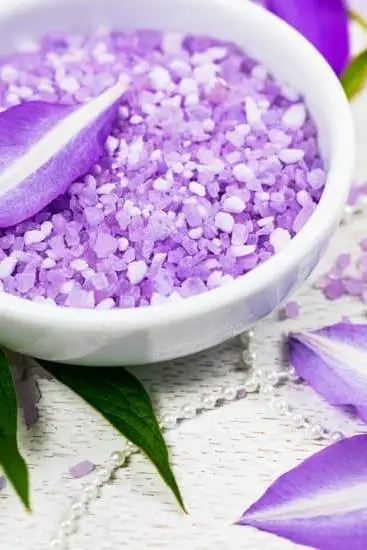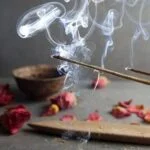Aromatherapy oils have gained popularity for their ability to promote relaxation, relieve stress, and enhance well-being. However, like many other products, aromatherapy oils have a shelf life and can eventually expire.
In this article, we will explore the factors that contribute to the expiration of aromatherapy oils and how you can determine if your oil has gone bad. We will also discuss the dangers of using expired oils and provide tips on extending their shelf life for optimal safety and effectiveness.
Aromatherapy oils, also known as essential oils or volatile oils, are highly concentrated plant extracts that retain the natural fragrance and therapeutic properties of aromatic plants. They are commonly used in various applications such as diffusers, massage therapy, bath products, and skincare.
Proper storage is crucial in maintaining the quality and shelf life of aromatherapy oils. Exposure to heat, light, air, and moisture can accelerate the oxidation process and lead to degradation of the oil. This is why it is important to store them in dark glass bottles away from direct sunlight or heat sources.
Expired aromatherapy oils may not only lose their fragrance but can also pose potential risks when used. In some cases, expired oils may develop rancid odors or even become harmful due to chemical changes that occur over time. It is therefore essential to be able to recognize signs of expiration and know how to properly dispose of them.
In the following sections of this article, we will delve deeper into these topics by discussing the signs of expired aromatherapy oils, the dangers associated with their use after expiration, factors that affect their shelf life, best practices for preserving them, and expert insights on this matter. By understanding the shelf life of aromatherapy oils and following proper care guidelines, you can ensure that your oils remain safe and effective for your desired purposes.
What Are Aromatherapy Oils?
Aromatherapy oils, also known as essential oils, are highly concentrated plant extracts that are used in aromatherapy practices for their therapeutic properties. These oils are derived from various parts of plants such as leaves, flowers, bark, and roots. They contain the natural essence of the plant and can be used to promote physical and emotional well-being.
Aromatherapy oils have been used for centuries in different cultures for their healing properties. Each oil has its own unique scent and therapeutic benefits. For example, lavender oil is known for its calming and relaxing qualities, while peppermint oil is often used for its invigorating and energizing effects.
These oils can be used in a variety of ways including through inhalation (using diffusers or steam inhalation), topical application (through massage or bath), or ingestion (under the guidance of a qualified professional). It is important to note that not all essential oils are safe for ingestion and should be used with caution.
Proper storage of aromatherapy oils is crucial to ensure their longevity. These oils are sensitive to light, heat, air, and moisture which can cause them to degrade over time. It is recommended to store them in dark glass bottles away from direct sunlight and extreme temperatures. Additionally, using dropper caps instead of pipettes can minimize exposure to air.
| Aromatherapy Oil | Shelf Life |
|---|---|
| Lavender | 3-4 years |
| Peppermint | 3-4 years |
| Eucalyptus | 2-3 years |
| Tea Tree | 2-3 years |
It is important to note that these shelf lives are general guidelines and can vary depending on factors such as the quality of the oil, how it is stored, and how frequently it is used. It is always recommended to check for signs of expiration before use.
The Importance of Proper Storage for Aromatherapy Oils
Proper storage is crucial when it comes to preserving the shelf life and effectiveness of aromatherapy oils. Whether you are a seasoned aromatherapy enthusiast or just starting out, understanding the importance of proper storage practices is essential for getting the most out of your oils.
One of the key factors in ensuring that your aromatherapy oils remain fresh and potent is to store them in a cool, dark place. Exposure to heat and sunlight can accelerate the breakdown of these oils and cause them to lose their therapeutic properties faster. Therefore, it is recommended to keep your oils away from direct sunlight and sources of heat such as radiators or stoves.
Another important consideration for storing aromatherapy oils is to keep them tightly sealed in their original containers. Oxygen exposure can lead to oxidation, causing the oil to deteriorate more quickly. Therefore, make sure that you close the bottle tightly after each use, avoiding unnecessary exposure to air.
To further protect your aromatherapy oils from moisture and potential contamination, it is advisable to store them in dark-colored glass bottles. This helps block out light and prevents any potential chemical reactions that may occur when exposed to certain materials found in plastic or clear glass containers.
It’s worth noting that different types of aromatherapy oils may have specific storage requirements due to their unique properties. For instance, some citrus-based oils like lemon or orange are more prone to oxidation and should be stored in a refrigerator to prolong their shelf life. On the other hand, heavier base oils like jojoba or coconut oil usually have a longer shelf life but still require proper storage conditions.
By following these best practices for storage, you can ensure that your aromatherapy oils remain fresh and at their best for longer periods of time. Investing in good storage habits not only helps maintain the quality and effectiveness of your oils but also enhances safety by reducing the risk of using expired or contaminated products. So take care of your precious aromatherapy oils and enjoy their therapeutic benefits to the fullest.
Signs of Expired Aromatherapy Oils
Aromatherapy oils have a shelf life, and it is important to be able to recognize when they have expired. Using expired oils can not only diminish their therapeutic benefits but can also pose potential risks to your health. In this section, we will discuss the signs of expired aromatherapy oils and how you can tell if your oil has gone bad.
One of the most obvious signs that an aromatherapy oil has expired is a change in its aroma. Aromatherapy oils typically have a distinct and pleasant scent, but as they age, the aroma may become dull, rancid, or even foul-smelling. If you notice any drastic changes in the smell of your oil, it is likely past its prime.
Another indication that an aromatherapy oil has gone bad is a change in its appearance or consistency. Oils that have expired may become cloudy, discolored, or develop sediment at the bottom of the bottle. Additionally, the texture of the oil may become thicker or more viscous than usual. These changes suggest that the oil has undergone chemical reactions over time and is no longer suitable for use.
In some cases, using an expired aromatherapy oil can cause skin irritation or allergic reactions. Expired oils may contain higher levels of oxidized compounds or impurities that can irritate sensitive skin or trigger allergies. If you experience any redness, itching, or discomfort after applying an aromatherapy oil that you suspect to be expired, it is best to discontinue use immediately.
Properly storing your aromatherapy oils in a cool, dark place away from direct sunlight and heat sources can help extend their shelf life. It’s important to note that certain factors such as exposure to light, air, heat, and moisture can accelerate the degradation process of essential oils. Many aromatherapy oils come in dark-colored glass bottles which provide better protection against light damage compared to clear bottles.
| Signs of Expired Aromatherapy Oils | How to Tell if Your Oil Has Gone Bad |
|---|---|
| Change in aroma | If the oil smells dull, rancid, or foul |
| Change in appearance or consistency | If the oil becomes cloudy, discolored, has sediment, or thickens |
| Potential skin irritation or allergic reactions | If redness, itching, or discomfort occurs after use |
The Dangers of Using Expired Aromatherapy Oils
Introduction to the Dangers of Using Expired Aromatherapy Oils
Using expired aromatherapy oils can pose a variety of risks and dangers. While it may be tempting to continue using an oil that is past its expiration date, doing so can potentially have negative effects on your health and well-being. In this section, we will explore the specific dangers associated with using expired aromatherapy oils and why it is important to prioritize safety when incorporating these oils into your wellness routine.
Potential Health Risks
One of the most significant dangers of using expired aromatherapy oils is the potential for adverse reactions or side effects. When an oil has expired, its chemical composition may change, leading to a loss of therapeutic properties and the development of harmful compounds. These changes can result in skin irritation, allergic reactions, or even more serious health issues.
Expired oils may also become contaminated with bacteria or fungi over time. The growth of these microorganisms in the oil can lead to infections or other health problems when applied to the skin or inhaled. Furthermore, using expired essential oils internally can pose additional risks, as certain compounds may break down into toxic substances during the expiration process.
Reduced Effectiveness
Aside from potential health risks, using expired aromatherapy oils can also lead to a decrease in their effectiveness. Over time, essential oils naturally degrade and lose their potency. This means that using expired oils may not provide you with the intended therapeutic benefits. Whether you are seeking relief from stress and anxiety or hoping to alleviate physical ailments, relying on expired oils might leave you feeling disappointed and frustrated.
It’s important to note that different essential oils have varying shelf lives, so some may expire quicker than others. For instance, citrus oils tend to have shorter expiration dates due to their high levels of oxygen-reactive compounds. Understanding the specific expiration dates for your oils can help you avoid potential dangers and ensure you are getting the most out of your aromatherapy experience.
Factors That Can Affect the Shelf Life of Aromatherapy Oils
While aromatherapy oils can have a long shelf life if stored properly, there are several factors that can affect their longevity. Understanding these factors can help you ensure that your oils stay fresh and effective for as long as possible.
One of the main factors that can impact the shelf life of aromatherapy oils is exposure to air and light. Oxygen and UV rays from sunlight can cause oxidation and degradation of the oils, leading to a shorter lifespan. To minimize this effect, it is important to store your oils in dark, opaque bottles that are tightly sealed. This will help protect them from exposure to air and light, preserving their potency.
Temperature is another crucial factor that can affect the shelf life of aromatherapy oils. Extreme temperatures, both high and low, can lead to changes in the chemical composition of the oils, making them less effective or even causing them to go bad.
It is best to store your oils in a cool, dry place away from direct heat sources or fluctuating temperatures. Keeping them in a refrigerator or a dedicated storage box specifically designed for essential oils can help maintain their quality over time.
The quality of the oil itself is also an important factor in determining its shelf life. Higher quality oils that have been properly distilled and stored are more likely to have a longer shelf life compared to lower quality ones. Therefore, it is essential to purchase your aromatherapy oils from reputable sources that provide information about their production methods and storage practices.
By understanding these factors and taking appropriate measures, you can extend the shelf life of your aromatherapy oils significantly. This will not only save you money but also ensure that you are using oils at their peak effectiveness. In the next section, we will explore some best practices for preserving your aromatherapy oils to maximize their longevity.
How to Extend the Shelf Life of Your Aromatherapy Oils
Aromatherapy oils can provide numerous benefits for physical and mental well-being, but it is essential to understand their shelf life and how to properly preserve them. By following best practices for preservation, you can extend the shelf life of your aromatherapy oils and ensure that they remain safe and effective for longer periods of time.
Here are some tips on how to extend the shelf life of your aromatherapy oils:
- Store in a cool, dark place: Aromatherapy oils are sensitive to light and heat, which can cause them to deteriorate more quickly. To preserve their potency, it is important to store them in cool, dark places such as a cupboard or drawer away from direct sunlight or heat sources.
- Keep them tightly sealed: Oxygen exposure can also accelerate the degradation of aromatherapy oils. Make sure to tightly seal the bottles after each use to prevent oxygen from entering and causing oxidation. This will help maintain the oil’s freshness and efficacy.
- Use amber or cobalt glass bottles: Aromatherapy oils should be stored in dark-colored glass bottles such as amber or cobalt blue. These colors help block out harmful UV rays and protect the oil from light damage. Avoid using plastic containers as they may react with the oil and affect its quality.
Additionally, it is important to avoid certain practices that can reduce the shelf life of your aromatherapy oils. For example, exposing them to extreme temperatures or moisture can cause them to spoil faster. It is also crucial to avoid contaminating the oil by using dirty utensils or transferring it into unclean containers.
By following these best practices for preservation, you can ensure that your aromatherapy oils last longer and retain their therapeutic properties. Taking care of your oils not only maximizes their effectiveness but also ensures your safety when using them for various purposes like massage, diffusing, or topical application.
Tips for Properly Disposing of Expired Aromatherapy Oils
Why Proper Disposal of Expired Aromatherapy Oils is Important
When it comes to expired aromatherapy oils, it is essential to understand the importance of proper disposal. Expired oils can lose their therapeutic properties and even become harmful when used past their expiration date. Disposing of these oils correctly ensures the safety of both individuals and the environment.
Don’t Pour Down The Drain
One common mistake people make is pouring expired aromatherapy oils down the drain or toilet. This not only poses a risk to your plumbing system but also harms the environment. Aromatherapy oils are typically highly concentrated substances that may contain various chemicals. When they enter water systems, they can contaminate aquatic life and ecosystems. Therefore, it is crucial to avoid disposing of these oils in this manner.
Recycling or Reusing Containers
When considering how to dispose of expired aromatherapy oils, one option is recycling or reusing the containers they came in. Before recycling a container, ensure that it is thoroughly cleaned and emptied of any remaining oil. Remove any labels or stickers as well, as these can interfere with the recycling process. Additionally, consider repurposing empty containers for storage purposes or as DIY projects for blending your own essential oil creations.
Seeking Local Recycling or Hazardous Waste Programs
Another option for properly disposing of expired aromatherapy oils is through local recycling programs or hazardous waste collection centers. These facilities are equipped to handle potentially toxic substances like essential oils safely and responsibly without causing harm to human health or the environment. Reach out to your local government offices or waste management organizations to inquire about any specific guidelines for disposing of essential oils in your area.
By following these tips for properly disposing of expired aromatherapy oils, you are taking responsible actions that prioritize both personal safety and environmental well-being. Remember that each essential oil may have different requirements for disposal, so it is crucial to research and follow the specific guidelines provided by the manufacturer or local authorities.
How to Determine the Expiration Date of Aromatherapy Oils
When it comes to determining the expiration date of aromatherapy oils, understanding labeling and batch codes is essential. This information can provide valuable insights into the freshness and shelf life of the oils. Here are some key considerations when deciphering labeling and batch codes on aromatherapy oil packaging:
Date of Manufacture
One important factor in determining the expiration date of aromatherapy oils is the date of manufacture. This can often be found on the packaging or bottle label. The date of manufacture indicates when the oil was produced, allowing you to estimate its shelf life based on industry guidelines.
Best Before Date
Many manufacturers include a “best before” or “use by” date on their aromatherapy oil products. This date represents the manufacturer’s recommendation for when to use the oil for optimal quality and effectiveness. It is important to note that this is not necessarily an expiration date, but rather a suggestion for peak freshness.
Batch Codes
Batch codes are alphanumeric codes printed on product packaging that provide detailed information about when and where a specific batch of aromatherapy oil was manufactured. These codes can vary in format depending on the manufacturer but generally include information such as production dates, lot numbers, and manufacturing facility identification.
Understanding batch codes can be beneficial because they allow you to track specific batches of oils, ensuring you know when they were produced and how long they have been stored before purchase. It’s worth noting that some manufacturers may have online resources available where you can input batch codes to obtain more detailed information about your product’s expiration date.
Ultimately, carefully reading labels and deciphering batch codes will help you determine the expiration date of your aromatherapy oils. By understanding these vital pieces of information, you can ensure that you are using your oils within their recommended shelf life for maximum potency and safety.
Recommended Shelf Life of Common Aromatherapy Oils
Aromatherapy oils have become increasingly popular for their therapeutic benefits and soothing scents. However, it is important to understand that these oils do have a shelf life, just like any other product. Knowing the recommended shelf life of common aromatherapy oils can help you ensure their safety and effectiveness.
- Lavender Oil: One of the most popular essential oils, lavender oil has a relatively long shelf life of about 2-3 years when stored properly. This calming oil is known for its stress-relieving properties and can be used in diffusers, massage oils, or added to bathwater for relaxation.
- Peppermint Oil: Known for its invigorating scent and cooling effect, peppermint oil typically has a shelf life of around 3-4 years. Its uplifting aroma is often used in aromatherapy blends to increase energy and promote mental clarity.
- Eucalyptus Oil: Due to its strong antiseptic and decongestant properties, eucalyptus oil is commonly used for respiratory conditions such as coughs and colds. It has a longer shelf life compared to some other oils, lasting up to 4-5 years when stored properly.
- Tea Tree Oil: With its powerful antimicrobial properties, tea tree oil is often used as a natural remedy for skin issues such as acne and fungal infections. When stored correctly, tea tree oil can last up to 2-3 years.
It is important to note that these recommended shelf lives are general guidelines and can vary depending on various factors such as storage conditions, brand quality, and packaging materials used. If you notice any changes in color, consistency, or smell of your aromatherapy oils, it is best to err on the side of caution and replace them.
To make the most out of your aromatherapy oils and extend their shelf life:
- Store them in dark-colored glass bottles to protect against UV light.
- Keep them in a cool, dry place away from direct sunlight or heat.
- Ensure the bottles are properly sealed to prevent oxygen exposure.
By following these storage guidelines and being aware of the recommended shelf life of common aromatherapy oils, you can maximize their potency and enjoy their benefits for longer periods.
Expert Insights and Opinions on Aromatherapy Oils’ Expiration
When it comes to the expiration of aromatherapy oils, experts in the field have varying opinions. Some experts believe that essential oils do not technically expire and can last for many years if stored properly, while others argue that they do have a shelf life and can eventually lose their effectiveness over time.
According to Robert Tisserand, an expert in aromatherapy and essential oil safety, most essential oils may not expire, but they can oxidize over time. Oxidation occurs when oxygen interacts with the molecules in the essential oil, causing them to break down and lose their therapeutic properties. This process can be accelerated by factors such as exposure to heat, light, and air.
On the other hand, Kurt Schnaubelt, a leading authority on aromatherapy, believes that essential oils do have expiration dates. He states that while some oils may last for several years without losing their fragrance or even improving with age, others may degrade more quickly and become less effective after a certain period of time.
It is important to note that while these experts have different perspectives on the expiration of aromatherapy oils, they both agree on the importance of proper storage and handling to maximize their shelf life. Storing your oils in dark glass bottles away from direct sunlight and extreme temperatures can help slow down oxidation and preserve their quality.
| Expert | Opinion |
|---|---|
| Robert Tisserand | Essential oils may not expire, but can oxidize and lose therapeutic properties over time |
| Kurt Schnaubelt | Believes essential oils have expiration dates and can degrade over time |
Conclusion
In conclusion, it is crucial to take proper care of your aromatherapy oils in order to ensure their optimal safety and effectiveness. By understanding the shelf life of these oils, you can make informed decisions about their use and storage. Paying attention to proper storage techniques, such as keeping the oils in a cool, dark place and tightly sealing the containers, can significantly extend their shelf life.
One of the key reasons for paying attention to the expiration of aromatherapy oils is because using expired oils can be dangerous. These oils may lose their therapeutic properties over time and could potentially cause adverse reactions on your skin or inhaled. It is essential to recognize the signs of expired oils, such as changes in color, texture, or scent, and dispose of them properly to avoid any potential harm.
Factors that can affect the shelf life of aromatherapy oils include exposure to heat, light, air, and moisture. To extend the longevity of your oils, it is recommended to store them in amber or dark glass bottles away from direct sunlight or heat sources. Additionally, regularly checking for expiration dates and batch codes on labels can provide valuable information about when an oil was produced and how long it will last.
By following best practices for preservation and understanding recommended shelf lives for common aromatherapy oils, you can maximize both the safety and effectiveness of your precious oil collection. It is always advisable to consult with experts or professionals in the field who have insights and opinions on aromatherapy oils’ expiration for further guidance. Ultimately, taking care of your aromatherapy oils diligently will ensure that they deliver their full potential benefits while also safeguarding your well-being.
Frequently Asked Questions
What is the shelf life of aromatherapy oils?
The shelf life of aromatherapy oils varies depending on the type of oil and how it is stored. Generally, most essential oils have a shelf life of 1-2 years if stored properly. However, some oils, such as citrus oils, have shorter shelf lives due to their higher volatility and can last around 6-9 months.
It’s important to note that the quality and potency of the oil may deteriorate over time, even within its shelf life. To prolong the shelf life of aromatherapy oils, it is recommended to store them in dark glass bottles away from direct sunlight, heat, and moisture.
What essential oil has the longest shelf life?
Among essential oils, patchouli oil is known for having one of the longest shelf lives. Patchouli oil has a stable molecular structure which contributes to its longevity when stored properly.
With proper storage conditions and adequate care, patchouli oil can last up to 3-4 years without significant degradation in quality or scent. This makes it a popular choice for those seeking an essential oil with a longer shelf life.
Do essential oils lose their scent over time?
Essential oils generally maintain their scent relatively well over time when stored properly. However, it’s important to note that there can be subtle changes in the aroma as an essential oil ages or oxidizes. Factors such as exposure to air, light, and heat can contribute to these changes in scent over time.
While the general aroma profile remains intact for most essential oils during their recommended shelf life, very old or poorly stored oils may lose some of their fragrance or develop off notes. It’s always recommended to perform a scent test before using older essential oils if maintaining the original fragrance is crucial for your desired use.

Are you looking for a natural way to improve your health and wellbeing?
If so, aromatherapy may be the answer for you.





